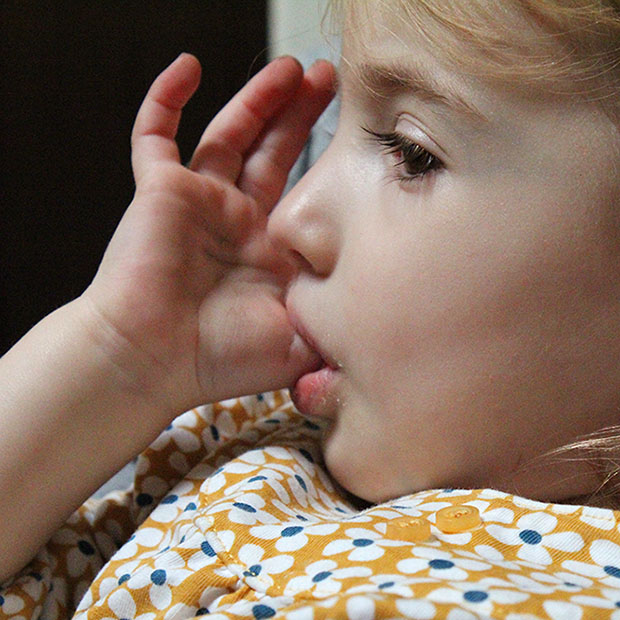Pacifiers, Thumb Sucking, And Baby’s Teeth

It’s not always easy to know the best thing to do as a parent.
Every child is different and there isn’t a handy instruction manual. One question on many new parents’ minds is when to start discouraging a child from sucking their thumbs or using pacifiers. We might not be able to answer all of your parenting questions, but we have this one covered.
Babies And Toddlers Benefit From These Habits
Sucking on anything and everything is a natural reflex for babies. It’s soothing and comforting for them, especially when they’re teething. There’s no reason to discourage thumb sucking or pacifier use for babies and toddlers. It will help them sleep, stay calm when separated from you, and even reduce the risk of SIDS.
When Should Thumb Sucking Stop?
Many parents are anxious to curb a pacifier or thumb-sucking habit behind as soon as possible because they worry it will cause the adult teeth to grow in crooked. This is a valid concern, but not before a child is about four years old, at which point most will stop sucking their thumbs on their own. If they don’t, it’s time to start weaning them off it.
Vigorous thumb sucking beyond age four can change the shape of the palate and cause an open bite in the permanent teeth. An open bite is where the front upper and lower teeth slant outward and do not touch when the teeth are closed, which causes problems with chewing and speaking clearly.
Strategies For Breaking The Thumb-Sucking Habit
These dental problems are a bigger risk for thumb suckers than pacifier users, because you can simply take the pacifier away if they won’t stop using it on their own. Hopefully you’ll be able to get your child to stop sucking their thumb by age five, but if they’re close to their sixth birthday with no signs of stopping, it’s time to get serious. Here are a few strategies to try:
- Focus on positive reinforcement. Praise successes rather than punishing continued thumb sucking.
- Make a rewards chart so that they can see what they’re working towards.
- Keep their hands occupied with activities like arts and crafts.
- Be careful using topical aids to make their thumbs taste bad, because many don’t work and some are actually harmful.
- To prevent nighttime thumb sucking, restrict access to their thumbs by putting socks on their hands. (You might need to tape them in place.)
Let Us Know How It’s Going!
If you’re getting worried about your child’s continued pacifier use or thumb-sucking habit, don’t hesitate to talk to us about it. We can answer any questions you may have and help you with your strategies for ensuring that your child’s palate and adult teeth develop the right way.
